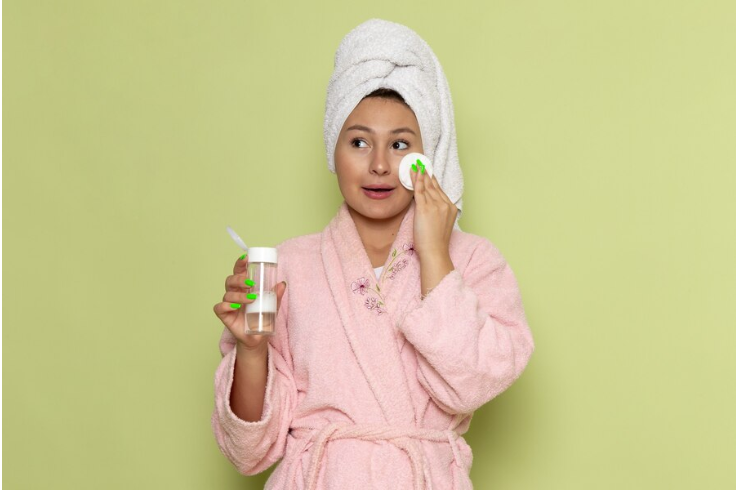When it comes to maintaining healthy skin, cleansing is the foundation of any skincare routine. A good cleanser removes dirt, oil, and impurities that build up throughout the day, setting the stage for other products to work more effectively. With so many types of cleansers available, how do you choose the right one? Here’s everything you need to know about different skin cleanser products and how to pick the one that’s perfect for your skin type.
Why Cleansing is Essential for Healthy Skin
Cleansing isn’t just about getting rid of dirt. A well-chosen cleanser helps remove dead skin cells, makeup residue, and environmental pollutants that can clog pores and lead to breakouts. Regular cleansing also helps to balance the skin’s natural oil production, leaving it refreshed and prepped for moisturizer and other treatments.
Different Types of Skin Cleanser Products
Choosing the right type of cleanser can make a world of difference. Here’s a rundown of the most common types:
Gel Cleansers
Gel cleansers are lightweight, water-based formulas known for their deep-cleansing abilities. They are particularly effective for people with oily or acne-prone skin as they help control excess oil without over-drying. These cleansers often contain ingredients like salicylic acid to combat breakouts.
Cream Cleansers
Cream cleansers are rich and nourishing, making them a great choice for those with dry or sensitive skin. They cleanse the skin gently without stripping away natural oils, which is crucial for maintaining moisture.
Foam Cleansers
Foam cleansers have a bubbly texture and are effective at removing impurities while providing a deep cleanse. They’re generally best suited for combination skin types, as they can balance areas that are oily without overly drying the skin.
Micellar Water
Micellar water is a no-rinse cleanser that’s ideal for all skin types. It uses tiny oil molecules called micelles to lift away dirt and makeup without needing to rinse. This makes it a quick and convenient option, especially for makeup removal.
Oil Cleansers
Oil cleansers work on the principle that “like dissolves like,” meaning they’re effective at removing oil-based impurities and makeup. They’re especially good for dry and mature skin types, as they provide hydration without leaving the skin feeling tight.
Exfoliating Cleansers
Exfoliating cleansers contain small particles or chemical exfoliants to remove dead skin cells along with impurities. These should be used sparingly, as overuse can lead to irritation, but they’re great for refreshing the skin.
How to Choose the Right Skin Cleanser Products
Selecting the right cleanser depends on knowing your skin type and any specific concerns you may have.
Identifying Your Skin Type
Knowing whether you have oily, dry, combination, or sensitive skin can help you pick a cleanser that won’t irritate or dry out your skin. Generally:
- Oily skin may benefit from gel or foam cleansers.
- Dry skin pairs well with cream or oil cleansers.
- Combination skin does best with gentle foaming cleansers.
- Sensitive skin requires fragrance-free, gentle cleansers, like cream or micellar water.
Matching Ingredients to Skin Needs
Certain ingredients target specific skin concerns. For example, salicylic acid is great for acne, while hyaluronic acid provides hydration for dry skin. Look for ingredients that support your skin’s needs.
Avoiding Harsh Ingredients
Ingredients like sulfates, alcohol, and artificial fragrances can irritate sensitive skin. It’s wise to check product labels if you have sensitive skin and avoid these potential irritants.
Key Ingredients in Skin Cleansers
Knowing what’s in your cleanser can help you make a more informed choice.
Salicylic Acid for Acne-Prone Skin
Salicylic acid is a beta-hydroxy acid (BHA) that’s oil-soluble, making it effective for breaking down excess sebum in the pores. It’s a powerful ingredient for treating and preventing acne.
Hyaluronic Acid for Hydration
Hyaluronic acid is excellent for dry skin, as it helps attract moisture into the skin. It’s a common ingredient in gel and cream cleansers designed for dry and dehydrated skin types.
Antioxidants for Added Protection
Ingredients like Vitamin C, green tea, and other antioxidants help protect the skin from environmental damage while promoting a healthy glow. They’re especially beneficial in cleansers that are left on the skin for a few moments before rinsing.
Popular Skin Cleanser Brands to Try
From affordable drugstore options to luxury skincare, there are many brands that provide quality cleansers for different skin types.
Drugstore Skin Cleanser Options
Affordable cleansers like Cetaphil and Neutrogena offer gentle, effective products for everyday use. These are well-known for being dermatologically tested and suitable for sensitive skin.
High-End Skin Cleansers for Luxury Skincare
For those seeking a more luxurious experience, brands like La Mer, Drunk Elephant, and Tatcha offer high-quality, nourishing cleansers. These products often include advanced formulations and premium ingredients.
Conclusion
A good skin cleanser products is the foundation of any skincare routine. The right cleanser can leave your skin feeling refreshed, balanced, and ready to absorb other skincare products more effectively. Take the time to choose one that matches your skin type and needs, and enjoy the benefits of a clean, healthy complexion.
FAQs
- How often should I use a skin cleanser?
For most skin types, cleansing twice daily — morning and night — is recommended. However, some people with dry or sensitive skin may prefer to cleanse just once in the evening. - Are natural cleansers better for sensitive skin?
Natural cleansers can be gentler, but it’s essential to read labels carefully. Some natural ingredients can still cause irritation in sensitive skin, so look for hypoallergenic options.
Can I use more than one type of cleanser?
Yes, many people use different cleansers depending on the time of day or the needs of their skin. For example, using a gentle cleanser in the morning and a deeper cleansing gel at night.











